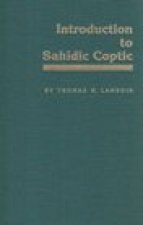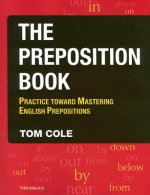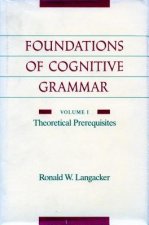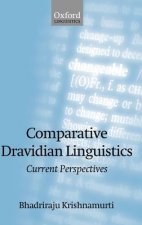
Kod: 01375972
Imposters
Autor Collins, Chris (Professor, New York University), Postal, Paul M. (Professor, New York University)
Normally, a speaker uses a first person singular pronoun (in English, I, me, mine, myself) to refer to himself or herself. To refer to a single addressee, a speaker uses second person pronouns (you, yours, yourself). But sometimes ... więcej
- Język:
 Angielski
Angielski - Oprawa: Twarda
- Liczba stron: 284
Wydawca: MIT Press Ltd, 2012
- Więcej informacji o książce

9.58 €
Zwykle: 11.57 €
Oszczędzasz 1.99 €
Dostępność:
50 % szansa Otrzymaliśmy informację, że książka może być ponownie dostępna. Na podstawie państwa zamówienia, postaramy się książkę sprowadzić w terminie do 6 tygodni. Gwarancja pełnego zwrotu pieniędzy, jeśli książka nie zostanie zabezpieczona.
Otrzymaliśmy informację, że książka może być ponownie dostępna. Na podstawie państwa zamówienia, postaramy się książkę sprowadzić w terminie do 6 tygodni. Gwarancja pełnego zwrotu pieniędzy, jeśli książka nie zostanie zabezpieczona.Przeszukamy cały świat
Zobacz książki o podobnej tematyce
Bon podarunkowy: Radość gwarantowana
- Podaruj bon o dowolnej wartości, a my się zajmiemy resztą.
- Bon podarunkowy dotyczy całej naszej oferty.
- Możesz wydrukować elektroniczny bon z e-maila a następnie przekazać go obdarowanemu.
- Ważność bonu wynosi 12 miesięcy od daty wystawienia.
Powiadomienie o dostępności
Wpisz swój adres e-mail, aby otrzymać od nas powiadomienie,
gdy książka będzie dostępna. Proste, prawda?
Więcej informacji o Imposters
Za ten zakup dostaniesz 24 punkty
 Opis
Opis
Normally, a speaker uses a first person singular pronoun (in English, I, me, mine, myself) to refer to himself or herself. To refer to a single addressee, a speaker uses second person pronouns (you, yours, yourself). But sometimes third person nonpronominal DPs are used to refer to the speaker--for example, this reporter, yours truly--or to the addressee--my lord, the baroness, Madam (Is Madam not feeling well?). Chris Collins and Paul Postal refer to these DPs as imposters because their third person exterior hides a first or second person core. In this book they study the interactions of imposters with a range of grammatical phenomena, including pronominal agreement, coordinate structures, Principle C phenomena, epithets, fake indexicals, and a property of pronominal agreement they call homogeneity. They conclude that traditional ideas about pronominal features (person, number, gender), which countenance only agreement with an antecedent or the relation of the pronoun to its referent, are much too simple. They sketch elements of a more sophisticated view and argue for its relevance and explanatory power in several data realms. The fundamental proposal of the book is that a pronoun agrees with what they call a source, where its antecedent constitutes only one type of source. They argue that the study of imposters (and closely related camouflage DPs) has far-reaching consequences that are inconsistent with many current theories of anaphora.
 Szczegóły książki
Szczegóły książki
Kategoria Książki po angielsku Language linguistics Grammar, syntax & morphology
9.58 €
- Pełny tytuł: Imposters
- Podtytuł: A Study of Pronominal Agreement
- Autor: Collins, Chris (Professor, New York University), Postal, Paul M. (Professor, New York University)
- Język:
 Angielski
Angielski - Oprawa: Twarda
- Liczba stron: 284
- EAN: 9780262016889
- ID: 01375972
- Wydawca: MIT Press Ltd
- Waga: 534 g
- Wymiary: 159 × 234 × 18 mm
- Data wydania: 16. March 2012
Ulubione w innej kategorii
-

Metaphors We Live By
17.96 € -10 % -

Successful Writing
26.74 € -

English for Presentations at International Conferences
37.54 € -17 % -

Grammatical Analysis of the Greek New Testament
44.71 € -

Aspects of the Theory of Syntax
41.98 € -

Latin Grammar
8.37 € -35 % -

McGraw-Hill's Conversational American English
22.60 € -12 % -

Cambridge Grammar of the English Language
368.21 € -

Longman's Student Grammar of Spoken and Written English Paper
42.59 € -

English for Academic Correspondence
36.83 € -19 % -

Introduction to English Syntax
22.60 € -19 % -

Student's Introduction to English Grammar
42.79 € -

Making Sense
10.29 € -28 % -

Woe Is I
15.84 € -17 % -

Icelandic
69.74 € -9 % -

Introduction to English Morphology
22.60 € -19 % -

English Syntax
68.83 € -

International Investment Arbitration
130.20 € -

Introduction to Sahidic Coptic
62.47 € -

Preposition Book
33.10 € -

Corpus Linguistics
68.12 € -

Construction Grammar and its Application to English
28.15 € -19 % -

Essentials of Cognitive Grammar
38.45 € -

Foundations of Cognitive Grammar
46.82 € -7 % -

Possession
45.92 € -

Oxford Handbook of Grammaticalization
255.66 € -

Interactive Vocabulary
68.22 € -

Dynamic Antisymmetry and the Syntax of Noun Incorporation
121.11 € -

Introduction to Attic Greek
56.82 € -

NTC's Dictionary of Phrasal Verbs
44.40 € -15 % -

Introducing Syntax
33.10 € -5 % -

Language of Humor
45.92 € -

Halliday's Introduction to Functional Grammar
70.34 € -4 % -

Norwegian: A Comprehensive Grammar
200.65 € -

Top 50 Grammar Mistakes
31.28 € -19 % -

Introduction to Syntax
50.16 € -

Somali Grammar
27.34 € -18 % -

Comparative Dravidian Linguistics
94.06 € -

Norwegian: A Comprehensive Grammar
87.10 € -9 % -

Conditionals and Prediction
60.75 € -

English Grammar
39.66 € -2 % -

Celtic and Medieval Alphabets
11.40 € -19 % -

Everything that Linguists have Always Wanted to Know about Logic . . . But Were Ashamed to Ask
78.72 € -

From Syntax to Text
15.53 € -39 % -

Pacific Languages
47.83 € -

A Grammar of Gurindji
32.09 € -18 % -

Pali Grammar for Students
39.76 € -

Cognitive Approaches to Pedagogical Grammar
316.83 € -

Morphology
31.58 € -10 %
Osobní odběr Bratislava a 2642 dalších
Copyright ©2008-24 najlacnejsie-knihy.sk Wszelkie prawa zastrzeżonePrywatnieCookies



 Vrácení do měsíce
Vrácení do měsíce Zdarma od 49.99 €
Zdarma od 49.99 € 02/210 210 99 (8-15.30h)
02/210 210 99 (8-15.30h)